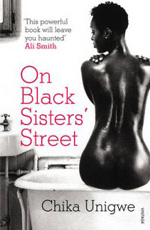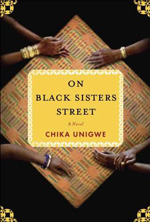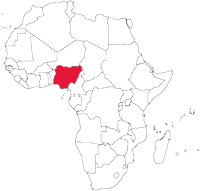


Vintage (UK), paperback, 9780099523949
Random House (US), hardcover, 9781400068333
 Let's be honest: my hopes for this book weren't high. The cover blurb ("Four very different women have made their way from Africa to the
red light district of Brussels") didn't do much for me. In short, I decided to read it only because, as a foreign resident in
Brussels myself, I was interested to see how Belgium was portrayed. You know how the saying goes, though—don't judge a
book by its cover! This captivating story had me hooked from page one. Whatever I expected, it wasn't this.
Let's be honest: my hopes for this book weren't high. The cover blurb ("Four very different women have made their way from Africa to the
red light district of Brussels") didn't do much for me. In short, I decided to read it only because, as a foreign resident in
Brussels myself, I was interested to see how Belgium was portrayed. You know how the saying goes, though—don't judge a
book by its cover! This captivating story had me hooked from page one. Whatever I expected, it wasn't this.
The novel opens with Sisi deriving extraordinary enjoyment from a perfectly ordinary bit of shopping and lunch on a spring day in Antwerp (despite what it says on the cover, the setting isn't Brussels at all). The optimism of the first paragraph ("The world was exactly as it should be. No more and, definitely, no less") is quickly undermined by mention of "memories that did not permit silence, making her yell in her sleep", and we know all is not as well as Sisi wants it to be. What is she running away from?
We find out soon enough, when page three finds us in a nearby house, the three other women wondering where Sisi is as they get dressed and do their make-up. It's quickly obvious that they're not friends getting ready for a night out, but prostitutes getting ready for work. The only thing the four women share, apart from a flat, is a link to Dele, the "big man" who recruited them in Lagos, promising them a better life in Europe, and to whom they now have to send a large chunk of their monthly earnings to pay off their "debt". However, Joyce, Efe and Ama are about to be brought closer together by Sisi's death.
What becomes clear as the novel unfolds is that prostitution isn't all Sisi was running from, that for all the women the step into prostitution was a flight in itself. They believed Dele's empty promises because they had to, because the hardships they suffered hadn't stopped them dreaming. Several of the women arrived in Belgium fully aware of why they had been brought (although one arrived still believing she was to be a nanny), and they see it as a necessary evil, the only way to achieve their dreams of houses, cars, husbands, children--the trappings of the normal life (as they imagine it, at least) to which they all aspire but which they have never known.
The first few scenes all take place in Antwerp, introducing us to the women—enigmatic Sisi, clinging on to the idea that she is following 'the prophecy' and is on her way to great success; beautiful Joyce and her compulsive cleaning; moody, prickly Ama; and determined Efe. They live a life which you and I can't imagine living, but they live it with humour and humanity. Their situation may be desperate (their fake passports having been confiscated until their debts are repaid, they are effectively prisoners). Scenes from the women's life and work in Antwerp are threads that hold the book together, and in amongst them the story of each woman is told. Their stories are varied, taking in all sorts of tragedies from the purely personal to civil war and refugee camps, but what the women have in common is the belief that a better life is out there waiting for them.
Like the women in the book, Unigwe is a Nigerian immigrant to Belgium. Before reading the book I'd have assumed that that's where the similarities ended (Unigwe has a PhD from a Dutch university and is a member of her local town council), just as I would have assumed that I myself have nothing in common with a Nigerian prostitute; I can't say that any more because this book has challenged me to question the way I see things. Isn't that what good fiction does?
